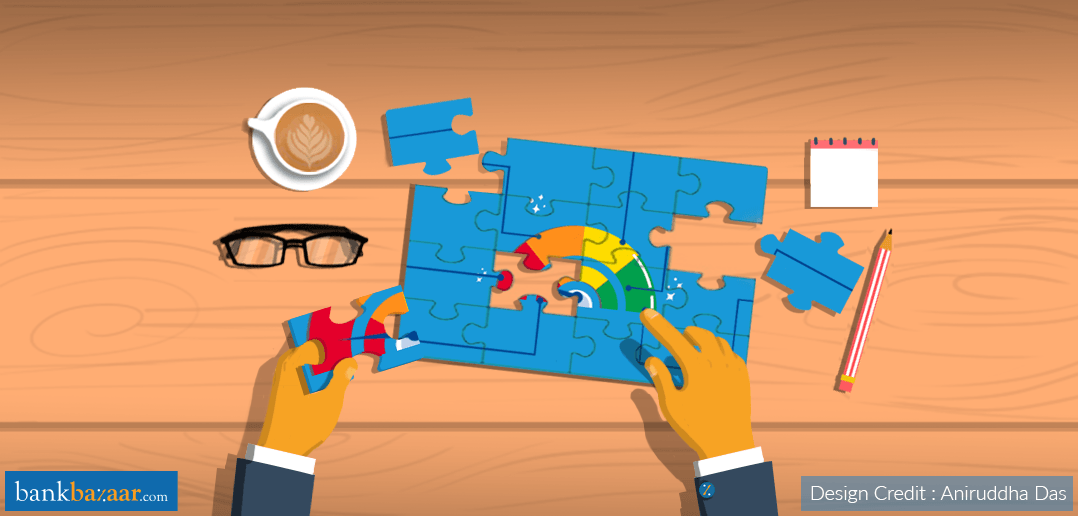Wondering how your Credit Score is calculated? Let’s take a look at what makes up your Credit Score.

“A little learning is a dangerous thing.”
Perhaps it was in his best interest that Sir Alexander Pope urged us to get to the bottom of things and never take them at face value.
Most of us are aware of the importance of having a good Credit Score, but often, we restrict ourselves to checking it without taking a closer look at our credit history.
Additional Reading: Credit Score – Frequently Asked Questions
While working at achieving a good score, we tend to overlook factors that have an immediate effect on our credit history. Read on to know more about the components of your Credit Score.
Additional Reading: How To Improve Your Credit Score Quickly
Let’s take a look at the elements that make up your Credit Score.
- Payment History: This factor holds a good 35% of your credit history and is a measure of your on-time payments.
Missing Credit Card bills and EMIs, defaulting loans, and utilizing more than 30% of your Credit Card limit can adversely impact your payment history.
Additional Reading: Tips To Improve Your Credit Score
- Card Utilisation: 30% of your Credit Score is held by your Credit Card utilisation. This factor weighs the outstanding balance on your Credit Card against the total credit limit of the card.
Maxing out your Credit Card and getting close to the limit are factors that can bring your Credit Score down.
Using multiple cards for a range of spends will prevent overutilisation and also foster a good Credit Score.
Additional Reading: 4 Terrific Ways In Which A Good Credit Score Can Help You Save Money
- Length Of Credit History: Comprising 15% of your Credit Score, this factor is determined by the age of your total credit history.
A longer credit history will offer more insight and a better picture of your long-term financial activity.
Instead of closing your old cards, use them to pay for groceries and utilities. That way, your expenses are evenly distributed and your Credit Score stays healthy.
Tip: Those without a lengthy credit history can avoid missed payments and ensure a low utilisation rate to achieve a high Credit Score.
Additional Reading: How to Build a Credit History If You Don’t Have Any Existing Loans
- Credit Mix: Having a mix of Credit Cards and investments can increase your Credit Score. Your credit mix contributes to 10% of your Credit Score.
As per historical data, borrowers with a mix of credit sources are considered low risk by lenders.
Additional Reading: Why Your Debt-To-Income Ratio Is As Crucial As Your Credit Score
- New Credit And Credit Enquiries: This factor holds another 10% of your Credit Score.
Each time a bank or a lender checks your score, it goes down slightly. Therefore, frequent application for Credit Cards and Loans can reduce your Credit Score.
Hey! Hold on! When you check your Credit Score on BankBazaar for free, it is a soft enquiry. This means that it doesn’t impact your score.
Additional Reading: A Case of the Credit Score Blues
The past long-term payment behaviour is used to project the future long-term payment behaviour. A good Credit Score has multiple benefits. It increases your credibility as a borrower, fetches better interest rates, and improves your chances of loan and Credit Card approval.
Do you think that a Credit Card or Personal Loan will help you boost your Credit Score? Check out the host of options available at BankBazaar.
Additional Reading: Things You Should Know Before Checking Your Credit Score
If you still don’t know your Credit Score, get your Experian Credit Score for free. Now that you are equipped with a fair idea of what determines that magic number, we hope that you will ace your Credit Score game!